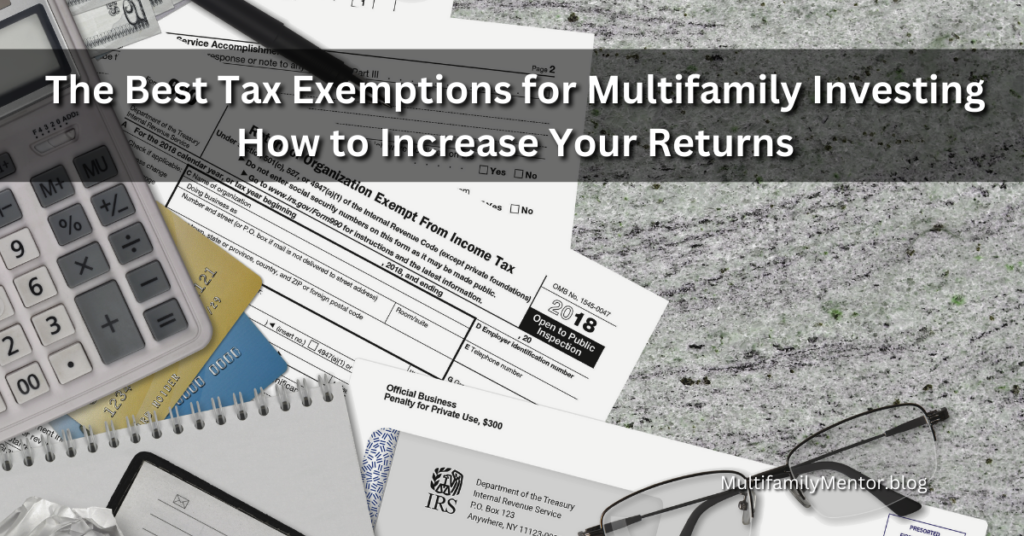Tax savings from multifamily investing. Learn about cost segregation, bonus depreciation, interest deductions, and 1031 exchanges. Contact a tax specialist right away.
Executive Summary
Investing in multifamily properties is a terrific method to create passive income and amass wealth over the long run. The possibility of tax exemptions is only one of the many advantages of multifamily investing. The key tax exemptions that investors can anticipate are covered in this article, including depreciation, interest deductions, cost segregation, 1031 exchanges, and bonus depreciation.
Introduction
Because to its many advantages, including tax advantages, passive income, and long-term wealth development, multifamily investing is a well-liked investment strategy. Multifamily investing offers various possible tax advantages that could reduce tax obligations and increase earnings for investors.
Depreciation
One of the most important tax advantages of multifamily investing is depreciation. Investors' taxable income is decreased by depreciation, which enables them to write off a portion of the cost of the asset over time. The following are some critical depreciation facts:
- Investors may depreciate the cost of any modifications made to the property over a period of 27.5 years, as permitted by the IRS.
- The land cannot be depreciated; only the building can.
- Taxes on depreciation recapture will be owed when the property is sold.
Interest Deductions
The opportunity to write off interest costs is a crucial tax advantage of multifamily investing. Investors can lower their taxable income by deducting the interest they pay on the mortgage for the property. What you should know about interest deductions is as follows:
- Investors may only deduct interest on mortgages up to $750,000.
- The interest deduction is only allowed for interest paid during the tax year.
- Personal loans and credit card interest are not tax deductible.
Cost Segregation
A tax approach called cost segregation divides a property's expenses into many categories, allowing for quicker depreciation and greater tax savings. The following are some critical elements concerning cost segregation:
- Cost segregation is only applicable to commercial assets, and it can help investors save money by expediting depreciation and lowering taxable revenue.
- Cost segregation studies can be pricey, but they can result in significant long-term tax savings.
1031 Exchanges
With a 1031 exchange, investors can sell one property and use the proceeds to purchase another, delaying capital gains taxes in the process. The following are some critical 1031 exchange facts:
- Any form of investment property, including multifamily properties, may be used in a 1031 exchange.
- Within 45 days of selling the original property, investors must find a replacement property; • Within 180 days of selling the original property, investors must execute the exchange.
- 1031 exchanges can be a difficult process, and investors should seek the assistance of a skilled tax specialist.
Bonus Depreciation
A tax benefit known as bonus depreciation enables investors to write off a significant amount of the cost of a property in the year it is put into use. The following are some crucial details about bonus depreciation:
- Bonus depreciation can only be used for new properties or properties that have been significantly renovated.
- Bonus depreciation is set to phase out over time, with the percentage of deduction decreasing each year.
- Bonus depreciation allows investors to deduct up to 100% of a property's cost in the year it is placed in service.
Conclusion
In conclusion, investing in multifamily properties has a number of tax advantages that can help investors increase their returns and reduce their tax obligations. The tax advantages that investors might anticipate include depreciation, interest deductions, cost segregation, 1031 exchanges, and bonus depreciation, to name a few. It's crucial to keep in mind that tax rules and regulations might change, so investors should always seek the advice of a skilled tax professional to be sure they are utilizing all potential tax benefits.

